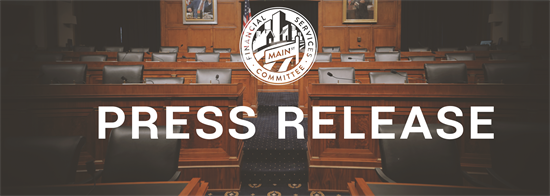Subcommittee Examines Impact of the JOBS Act After Five Years
Washington,
March 22, 2017
The Capital Markets, Securities, and Investment Subcommittee held a hearing on Wednesday to examine the Jumpstart Our Business Startups (JOBS) Act, five years after its passage. Members of the subcommittee heard from a panel of witnesses who testified on the impact of the JOBS Act on capital formation, job creation and economic growth. “It's time to refocus the SEC to advance a broader capital formation agenda. Let’s continue to build upon the success of the bipartisan JOBS Act by further modernizing our nation's securities regulatory structure to ensure a free-flow of capital, job creation, and economic growth. It's time to get the federal government working to support innovation and reward hardworking Americans,” said Chairman Bill Huizenga (R-MI). Key Takeaways from the Hearing:
Topline Witness Quotes: “Even given the significant and positive changes being brought about for entrepreneurs and investors with the JOBS Act, areas in need of improvement always exist, including government over-regulating or placing too many limitations on the ability of entrepreneurs to gain access to capital, and/or on investors’ abilities to make investments in entrepreneurial ventures.” - Raymond Keating, Chief Economist, Small Business & Entrepreneurship Council “Since the JOBS Act was signed into law five years ago, 212 emerging biotech companies have used provisions in the law to go public. For comparison, there were just 55 biotech IPOs in the five years leading up to the JOBS Act. The ability of growing businesses to access the public markets, as supported by the JOBS Act, is of paramount importance to biotechnology innovation because investment capital is the lifeblood of scientific advancement. It costs over $1 billion to develop a single life-saving treatment, and most companies spend more than a decade in the lab before their first therapy is approved. During this long development process, virtually every dollar spent by an emerging biotech comes directly from investors.” -Brian Hahn, Chief Financial Officer, GlycoMimetics, Inc. “[I]nvestors do not benefit from an overregulated public market. Indeed, they are impacted when companies choose to avoid a public listing in order to escape unnecessary regulation. Let me illustrate the point by referring to the growth experienced by Nasdaq’s largest listed companies…most of the growth of these companies was experienced while being listed on Nasdaq. Why is that important? It means that hundreds of billions of dollars of wealth were created for the millions of individuals (including rank and file employees) who invested in those companies through the public market.” – Edward S. Knight, Executive Vice President, General Counsel, and Chief Regulatory Officer, Nasdaq, Inc. “The Chamber remains very concerned about the long-term decline in the number of public companies in the United States, a development that has endured through varied market and political cycles… the United States is now home to roughly half the number of public companies as twenty years ago, and we have only slightly more public companies than existed in 1982. This is a tragic outcome for our economy, particularly given the body of evidence which shows that both job and revenue growth increase significantly once a company goes public…Whatever the exact economic consequences may be, it is indisputable that fewer public companies means less jobs, less growth, and less opportunity for American businesses and American workers.” – Thomas Quaadman, Executive Vice President, Center for Capital Markets Competitiveness, U.S. Chamber of Commerce ### |


